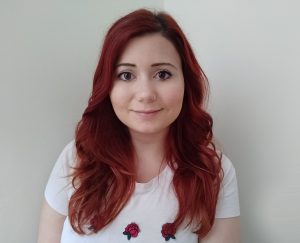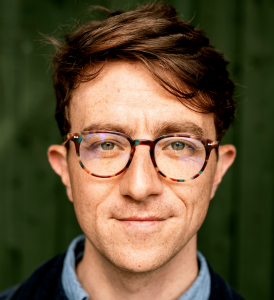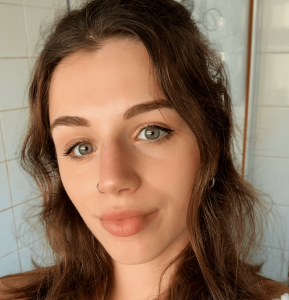DIP Lab Team 2020-2021
Professor Adam Rutland – DIP Lab Director
 Adam’s research focuses generally on social-cognitive development. His areas of expertise in a developmental context are: Prejudice, intergroup processes and relationships, social reasoning and morality; Peer exclusion, rejection, group dynamics and victimization; Cross-group friendships, intergroup attitudes, psychological well being; Interventions to reduce prejudice, intergroup contact; Children’s acculturation, ethnic and national identification.
Adam’s research focuses generally on social-cognitive development. His areas of expertise in a developmental context are: Prejudice, intergroup processes and relationships, social reasoning and morality; Peer exclusion, rejection, group dynamics and victimization; Cross-group friendships, intergroup attitudes, psychological well being; Interventions to reduce prejudice, intergroup contact; Children’s acculturation, ethnic and national identification.
Eirini Ketzitzidou Argyri – DIP Lab Manager
 Eirini manages the activities and administration of the lab. She is also a Graduate Research Assistant on two ESRC-funded research projects. On the Bystander project, Eirini is looking at children’s and adolescents’ bystander reactions to, and evaluations of, the social exclusion of immigrant peers and the development of norms across childhood and adolescence. Eirini is interested in understanding the cognitive mechanisms behind prejudice, perspective change and open-mindedness and has published a philosophical psychological novel exploring the subjective nature of our perceived reality in Greece.
Eirini manages the activities and administration of the lab. She is also a Graduate Research Assistant on two ESRC-funded research projects. On the Bystander project, Eirini is looking at children’s and adolescents’ bystander reactions to, and evaluations of, the social exclusion of immigrant peers and the development of norms across childhood and adolescence. Eirini is interested in understanding the cognitive mechanisms behind prejudice, perspective change and open-mindedness and has published a philosophical psychological novel exploring the subjective nature of our perceived reality in Greece.
Dr Luke McGuire – Lecturer

Luke’s research explores social and moral development in middle childhood and adolescence. His areas of expertise include how resource allocation is influenced by social norms and group processes; STEM learning and gender stereotyping; peer inclusion and exclusion based on gender identity, as well as children’s attitudes to environmental and animal rights as moral issues.
Amy Robbins – Research Assistant
 Amy is a third year placement student from Cardiff University working as a research assistant in Professor Rutland’s lab. She has particular interest in developmental and social psychology, specifically adolescents’ intergroup relations and social identity.
Amy is a third year placement student from Cardiff University working as a research assistant in Professor Rutland’s lab. She has particular interest in developmental and social psychology, specifically adolescents’ intergroup relations and social identity.
Steph Gibb – Final year PhD Student
 Steph’s research looks at children’s social moral development during intergroup competitive contexts. Her current doctoral work looks at hypercompetitiveness as both a group norm and individual difference factor when children are making social moral decisions. Further doctoral studies of hers, explore children’s understanding of outgroup threat during an interschools tug of war competition. She is also interested in children’s social moral development during changing political contexts and would love to study this after the completion of the PhD.
Steph’s research looks at children’s social moral development during intergroup competitive contexts. Her current doctoral work looks at hypercompetitiveness as both a group norm and individual difference factor when children are making social moral decisions. Further doctoral studies of hers, explore children’s understanding of outgroup threat during an interschools tug of war competition. She is also interested in children’s social moral development during changing political contexts and would love to study this after the completion of the PhD.
Ayse Yuksel – 4th year PhD Student

Ayse’s research focuses on children and adolescents’ behavioural and hypothetical reactions as bystanders to the exclusion of immigrants in interpersonal and intergroup contexts. She examines how intergroup factors such as group membership, group norms, stereotypes and social-moral reasoning influence young people’s evaluations of and actual bystander reactions to the social exclusion of immigrants. Ayse holds a Masters in Education (Psychology) from UCL, Institute of Educations and a Masters in Psychology of Religion from the University of Istanbul.
Fidelia Law – 3rd year PhD Student

Fidelia’s research explores children’s engagement at informal science learning sites (science centres and museums), motivation in learning and peer group influence on attitude towards science. She is a second year PhD student on the Wellcome Trust funded Science+ project. She holds an MA in International Development and Education from Newcastle University and has conducted research exploring the educational and occupational aspirations of children living in poverty at Accra, Ghana. Her current research employs an interdisciplinary approach to understanding STEM learning from a psychological and educational research perspective.
Aqsa Farooq – 2nd year PhD Student
 Aqsa’s research focuses on children’s moral decision making in intergroup contexts, specifically when outgroup and ingroup members spread misinformation. She is interested in investigating if the group membership and intentionality of the individual spreading misinformation influences children’s moral evaluations. Aqsa is a first year PhD student and holds a Masters in Applied Social Psychology from Royal Holloway, University of London.
Aqsa’s research focuses on children’s moral decision making in intergroup contexts, specifically when outgroup and ingroup members spread misinformation. She is interested in investigating if the group membership and intentionality of the individual spreading misinformation influences children’s moral evaluations. Aqsa is a first year PhD student and holds a Masters in Applied Social Psychology from Royal Holloway, University of London.
Lukas Wallrich – Affiliate member & PhD student at Goldsmiths, University of London

Lukas’ research focuses primarily on links between intergroup contact and prosocial behaviour, including bystander interventions and civic engagement. In that, he is particularly interested in the contribution youth work interventions can make; to explore this he conducts research in partnership with The Challenge Network and the United World Colleges (UWC). He holds an MA in Education (Psychology) from the UCL Institute of Education and a BA in Politics, Philsophy and Economics from the University of Oxford. In addition, he has experience in management consulting, and in youth work, there both as a trainer and board member of a German charity.

